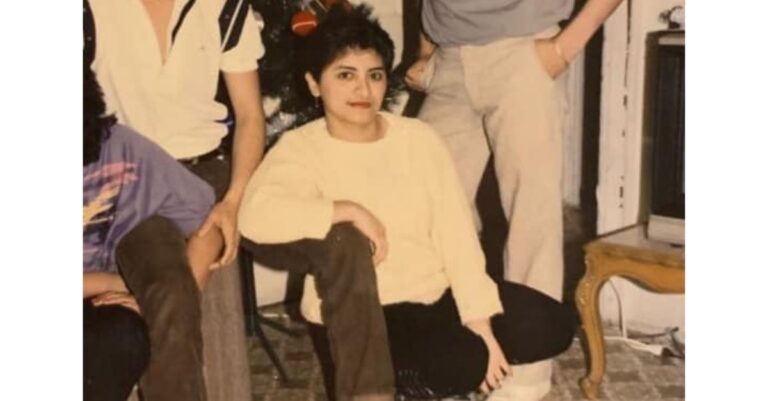What would push you to leave everything you’ve ever known? What would make you flee to a place where you would be regarded as a second-class citizen? I know these answers because my family’s immigration stories have always been a part of me.
But I know that many others haven’t. That’s not part of who they are and where they come from. They are exposed to immigration through external stories. When real stories aren’t shared, false narratives can take over.
We need people to share their truths, share their immigration stories. Only then can we help dispel the false narratives that cloud people’s minds about immigrants’ place in this country.
Here is one of my family’s real immigration stories.
Backstory
The Salvadoran Civil War raged from October 1979 to January 1992. Military and Guerilla fighters killed 80,000 people. The rampant violence in populated and non-populated areas displaced 550,000 within the country and pushed 500,000 into other countries.
The military and guerilla fighters didn’t follow traditional recruiting methods. They needed bodies, so they grabbed them by any means necessary. This included kidnapping boys as young as 12, placing a gun in their hands, and pushing them onto the battlefield. As soon as they died, their equipment was passed on to the next unwilling victim.
Avoiding Death
My mother couldn’t bear the thought of her brothers being senselessly murdered. They weren’t 12, but they would be in a few years. She needed to do something. They would be safe in the United States, she thought. But how could she get her brothers to the United States? It’s expensive and treacherous. They didn’t have that kind of money.
My mother realized she needed to make this journey alone. She could make enough money in the United States to send for her brothers.
And that’s what she did.
She worked in a textile manufacturing facility and saved every cent she could. Time wasn’t on her side. The war kept getting fiercer and closer to him.
Finally, she could send for her brothers.
But what about her sisters? Two of them decided to stay behind, but one wanted to escape as her siblings did.
Immigration Stories Over Hot Dogs and Burgers
A few years ago, I was at my tía’s (aunt’s) house for a backyard BBQ. I was talking to my mom and my tia when one thing led to another, and her immigration stories came up. She opened up to me about a moment that cemented her decision to leave. Unfortunately, she lived in a town that experienced its fair share of tragedy and bloodshed during the Civil War.
One of My Tía’s Immigration Stories
I do not remember the exact year, but I know it was either 1982 or 1983 that the war arrived in Gotera, Morazan. I’ll always remember the date, however, because it was daylight savings day when the hour goes back.
I heard gunshots early, and knew that the guerillas had come into town.
Nobody could leave their homes or they would be killed.
It was tough, because it went on day and night. Helicopters could be heard overheard, and guns were constantly being fired.
You know, my dad was so close to getting shot at one point for being too nosy! It was late afternoon, and my dad wanted to see what was going on outside, so he peeked out the window, when he saw a head pop out the window of the house across the street.
It was a guerilla soldier!
My dad ran away from the window and told us all to hide.
Apparently, he thought we were the enemy, because two bullets then came flying into the house; one getting jarred in the wall opposite the window my dad was peering out of, while the other narrowly missed him as it lodged into our kitchen table.
My dad never again got close to that door.
Following that battle, our town was devastated. There were so many people dead and even more injured.
That’s why I had to leave, it was just too dangerous for me to stay home.
Reckoning with Trauma
Bullets flying into your home. Helicopters are flying overhead. I don’t know if I could survive like that. I’ve never experienced anything close.
She was at risk of dying each time she walked outside her home. Her hometown was a battleground. She was lucky. She survived those bullets entering her home and another five years’ worth of danger.
I would never have imagined that she lived through such trauma.
She’s always been one of my family’s funniest and happiest people. Whenever I talk to her, I can always be sure that at least one of us will be laughing at one point during the conversation.
It’s as if she was able to separate that life from the one she has now. As she was reminiscing about her time in El Salvador during the war, she shared moments of horror and tragedy, but she never lost herself. She did not cry.
She has come to peace with that part of her life. She’s had no choice. Nobody cared about her traumatic past when she got to the United States. They cared about how hard she worked. And work hard she did, owning several businesses over the years!
But that trauma is what I encourage others to reckon with if they rage against the immigrants in this country. What would they have done if they were in my aunt’s shoes? How would they have dealt with the trauma she experienced? How happy and funny could they still be?



